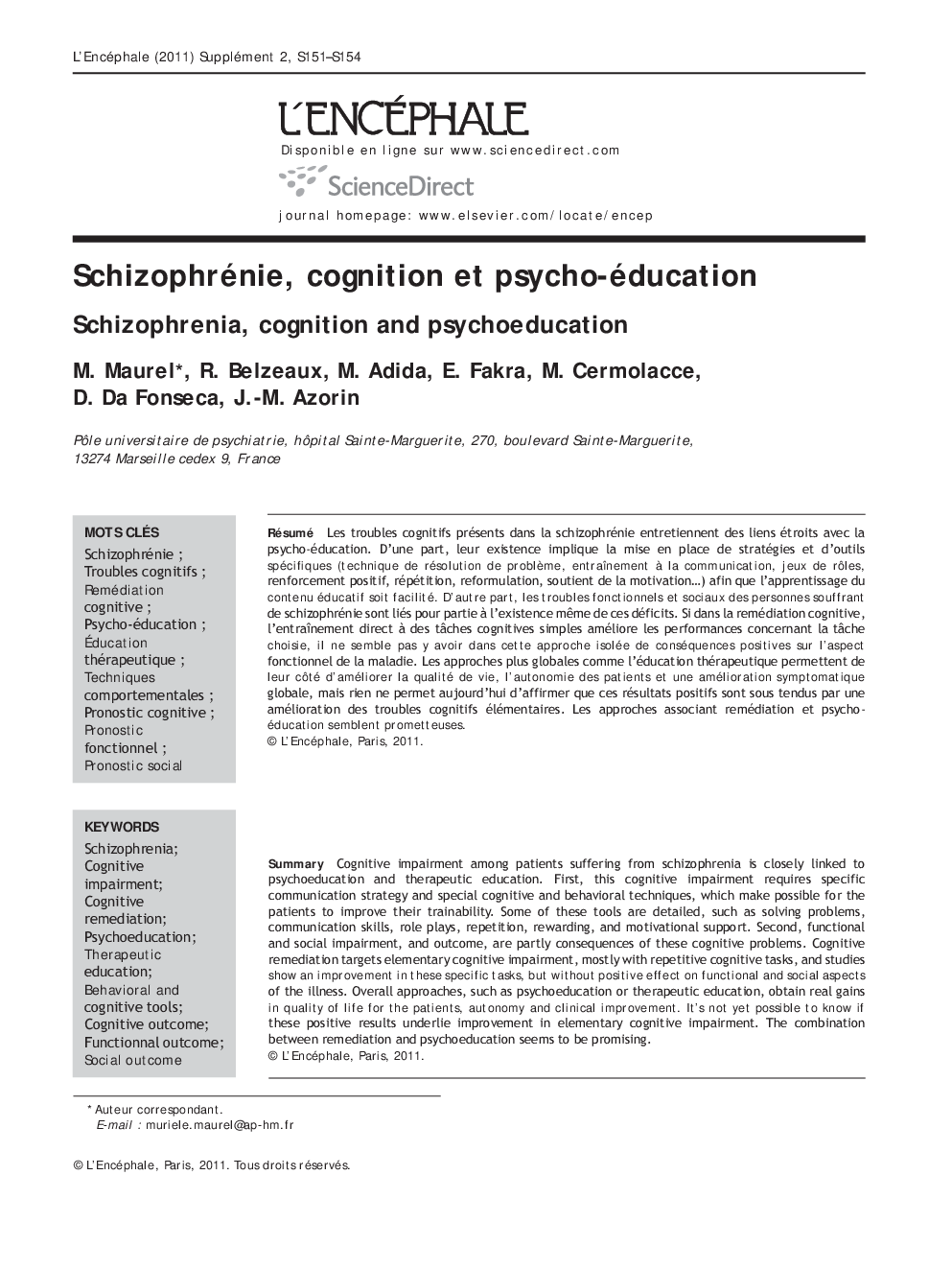| Article ID | Journal | Published Year | Pages | File Type |
|---|---|---|---|---|
| 4181984 | L'Encéphale | 2011 | 4 Pages |
Abstract
Cognitive impairment among patients suffering from schizophrenia is closely linked to psychoeducation and therapeutic education. First, this cognitive impairment requires specific communication strategy and special cognitive and behavioral techniques, which make possible for the patients to improve their trainability. Some of these tools are detailed, such as solving problems, communication skills, role plays, repetition, rewarding, and motivational support. Second, functional and social impairment, and outcome, are partly consequences of these cognitive problems. Cognitive remediation targets elementary cognitive impairment, mostly with repetitive cognitive tasks, and studies show an improvement in these specific tasks, but without positive effect on functional and social aspects of the illness. Overall approaches, such as psychoeducation or therapeutic education, obtain real gains in quality of life for the patients, autonomy and clinical improvement. It's not yet possible to know if these positive results underlie improvement in elementary cognitive impairment. The combination between remediation and psychoeducation seems to be promising.
Keywords
Related Topics
Health Sciences
Medicine and Dentistry
Psychiatry and Mental Health
Authors
M. Maurel, R. Belzeaux, M. Adida, E. Fakra, M. Cermolacce, D. Da Fonseca, J.-M. Azorin,
